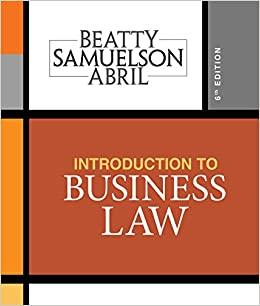Question
Case Study 2: Price fixing - Visy and Amcor packaging cartel Between them, Visy and Amcor controlled around 90 per cent of the corrugated fibre
Case Study 2: Price fixing - Visy and Amcor packaging cartel Between them, Visy and Amcor controlled around 90 per cent of the corrugated fibre packaging market (the humble cardboard carton), which was worth some $1.8 billion to $2 billion per year. From 2000 to 2004, the two companies conspired to raise the prices of their products while maintaining their respective market shares. Both companies nominated executives to consult on and coordinate price rises and collude when negotiating quotes for customers. These executives met regularly and secretly in public places such as hotels and parks, and also communicated using public phones and special prepaid mobiles. When larger customers wished to renegotiate contracts, the two companies swapped information to ensure that the competitor's quote was higher than the existing price structure (this practice is known as cover pricing). The scheme was discovered only when Amcor management reported to the ACCC and Amcor was granted immunity from prosecution. Visy eventually admitted its role in the cartel. It was fined $36 million by the Federal Court, and fines to individuals totalled $2 million. Thousands of firms (and ultimately millions of consumers) were significantly overcharged by the cartel. The Federal Court ordered Visy and Amcor to pay $95 million in damages to a customer class action involving more than 4500 businesses. This is what one of our Federal Court judges, Mr Justice Heerey said in November 2007, when he issued his judgement on this well-known Visy cartel case: The law, and the way it is enforced, should convey to those disposed to engage in cartel behaviour that the consequences of discovery are likely to outweigh the benefits, and by a large margin. Every day every man, woman and child in Australia would use or consume something that at some stage has been transported in a cardboard box. The cartel in this case therefore had the potential for the widest possible effect. The whole point of price fixing and market sharing is to obtain the benefit of prices greater than those which would be obtained in a competitive market. The cartel here went on for almost five years. Had it not been accidentally exposed, it would probably still be flourishing. It was run from the highest level in Visy, a very substantial company. It was carefully and deliberately concealed. It was operated by men who were fully aware of its seriously unlawful nature
7 ACCC Tools for Anticompetitive Behaviour
Answer the following questions here:
Q7) What tools does the ACCC have to prevent this type of behaviour/conduct?
Q8) Should the government prevent this type of behaviour?
Use the literature to support your analysis and findings.
Step by Step Solution
There are 3 Steps involved in it
Step: 1

Get Instant Access to Expert-Tailored Solutions
See step-by-step solutions with expert insights and AI powered tools for academic success
Step: 2

Step: 3

Ace Your Homework with AI
Get the answers you need in no time with our AI-driven, step-by-step assistance
Get Started


